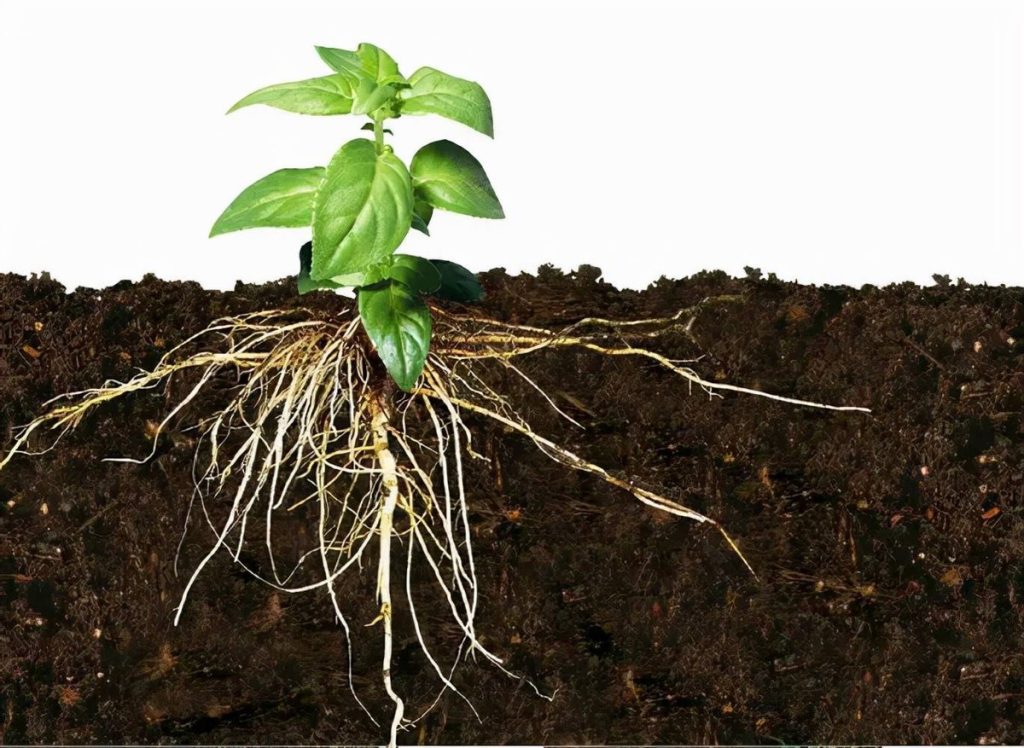Research data shows that potassium fulvicate has the effects of stimulating crop growth, increasing nutrient utilization, improving crop stress resistance and improving the quality of agricultural products in agricultural production. It is a highly efficient green fertilizer.
The role of potassium fulvic acid: stimulates plant root growth
The stimulating effect of potassium fulvicate on plant root growth is the initial driving force for its promoting effect on plant growth. Data show that after treatment with potassium fulvic acid, the number of tomato lateral roots increased by 2 to 3 times, and the length of lateral roots increased by 4 to 23 times. This effect is mainly due to the fact that plants show similar effects after being treated with potassium fulvic acid. In response to the stimulation of exogenous auxin, potassium fulvicate, as a biostimulant, can significantly improve the biochemical activity of plants, produce a similar auxin effect on the root system, cause changes in the permeability of the cytoplasmic membrane, and promote the synthesis of plant proteins. synthesis and cell growth, thereby promoting plant root growth. The stimulating effect of potassium fulvicate on plant roots causes differential expression of genes related to sucrose metabolism, ATPase and cytoskeletal protein synthesis in plant roots. For example, potassium fulvicate can promote the expression of the H+-ATPase encoding gene MH42 in corn roots, and can act as an induction factor for H+-ATPase on the cell plasma membrane to promote its expression. The increase in the number of H+-ATPase on the plasma membrane surface can increase The electrochemical proton gradient promotes proton transport across the membrane, thereby improving plant nutrition and stimulating plant root growth.
In addition, potassium fulvicate can stimulate the negative regulatory factors of Arabidopsis root hair cells to reduce their expression, promote the remodeling of root morphology, and increase the root area for absorbing nutrients, thereby achieving a growth-promoting effect.
The role of potassium fulvic acid: stimulates the absorption of nutrients by plant roots
Potassium fulvicate can also promote the absorption of nutrients by plant roots, mainly by promoting the absorption of nitrate. Potassium fulvicate can promote the expression of genes related to nitrate absorption and assimilation in plant roots. Under the action of low molecular weight humic acid, the expression levels of nitrate absorption-related gene MHA2 and assimilation-related gene NR1 increased in corn roots. In addition, potassium fulvicate can reduce the pH on the surface of plant root cell plasma membranes, neutralize the alkaline environment produced by nitrate as a nitrogen source, inhibit the co-transfer of H+ and NO3-, thereby promoting plant nitrogen absorption. . Therefore, potassium fulvicate can stimulate the assimilation and absorption of nitrate by plants by regulating the internal environment of plant roots.
Potassium fulvic acid can also be absorbed by plants as a nutrient. In particular, humic acid with a small molecular weight can easily reach the cytoplasmic membrane of higher plants and be absorbed and utilized by root cells.

